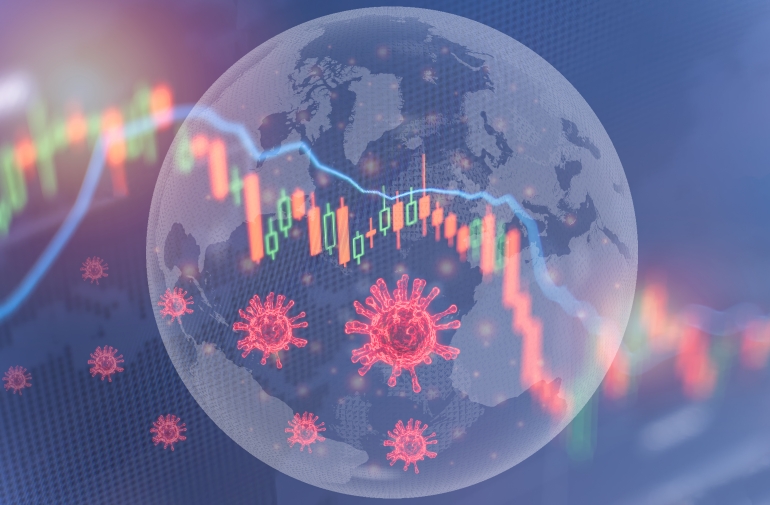Fri 08 May 2020
By Jayne He
With the escalated COVID-19 outbreak globally, the aftermath it may bring to the global economy is one of the most debatable issues to the public. Will the pandemic drive to a deglobalised world and disrupt the current international trade system? How will the future be like after the pandemic?
On 2 April, the Co-director of China International Business and Economic Law (CIBEL) Centre Professor Heng Wang shared his opinions on these questions at a teleforum conference call hosted by the Federalist Society on the topic of “Will COVID-19 Affect International Trade and Globalisation?” with Daniel Gerkin, who is an International Trade Counsel at Skadden.
At the call, Professor Wang made a number of points on the post COVID-19 international trade and (de)globalisation. He noted that the concerns over (de)globalisation has already started before the COVID-19 outbreak, which is evidenced by the rounds of trade wars between China and the US. The crisis of the WTO Appellate Body made the situation even more difficult, since international trade disputes cannot be solved in a timely manner and more uncertainties arise.
Professor Wang argued that issues related to national security, including those concerning the high-tech industry will also evoke more dynamics after the COVID-19 pandemic.
“It makes solving problems in traditional treaties, multi-national treaties like the WTO agreements, more difficult.” Professor Wang said.
He argued that “we're at crossroads” in combating the problems that COVID-19 revealed in international trade and globalisation. The pandemic has illustrated that the global value chain is “vulnerable in some sense”, and it is yet to be seen how businesses would diversify their supply chain in the future – but it would take some time.
Although there are uncertainties about the future of international trade and (de)globalisation, Professor Wang noted that COVID-19, on one hand, has revealed that global value chain or the free trade face problems as showed in the disruptions in their demand and supply. On the other hand, the COVID-19 also reveals the need for trade when the world fight against the epidemic.
“I think trade should be strengthened, but on the other side, we should also address the fundamental issue - the equality issue behind free trade. That is a smarter way of dealing that,” Professor Wang said.
The Podcast is available on the Federalist Society website. Professor Wang’s research may be found at ResearchGate, SSRN, Twitter @HengWANG_law, and LinkedIn.
